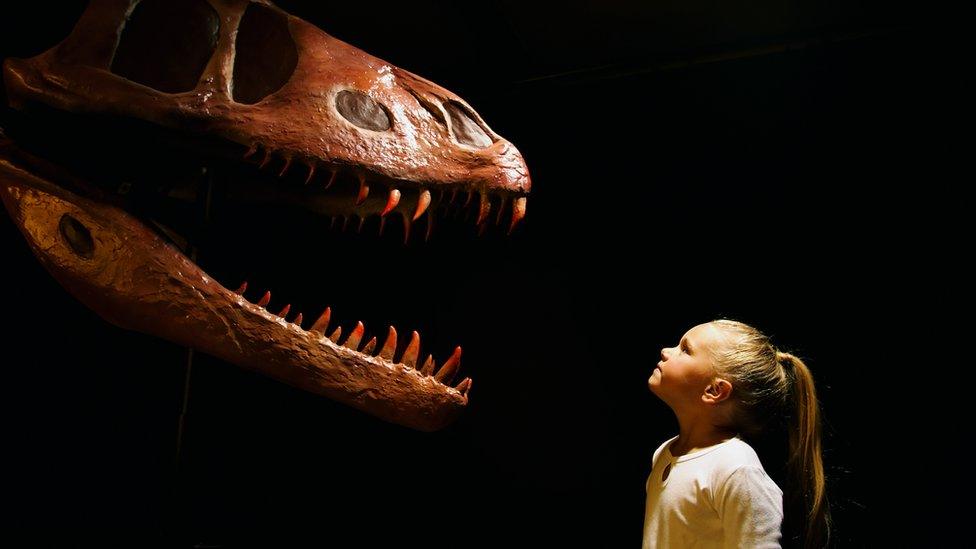Did humans and dinosaurs live at the same time?
- Published
- comments

Have you ever dreamed of walking among the dinosaurs?
Well it looks like a very early human ancestor may have done just that.
For years scientists have debated whether placental mammals - a group of animals which includes humans, dogs and bats - existed at the same time as dinosaurs.
Now researchers at the University of Bristol and the University of Fribourg in Switzerland say they have found evidence that human ancestors did briefly live at the same time as the dinosaurs.
Watch this animation all about how dinos died out.
We're able to understand quite a lot about the history of the Earth from millions of years ago thanks to things like fossils.
But the fossils of placental mammals that have been found so far on Earth are younger than 66 million years old, which is when an asteroid hit the planet causing the mass extinction of non avian dinosaurs.
That's why some scientists believe placental mammals didn't begin to evolve until after this event and therefore didn't exist alongside the dinosaurs.
We know lots about dinosaurs thanks to fossils that have been found around the world like this casting of Archaeopteryx - the oldest known bird
The latest analysis looks at molecular clock data, which looks at how DNA and protein sequences have evolved over time.
Lead author Emily Carlisle of Bristol's School of Earth Sciences said: "We pulled together thousands of fossils of placental mammals and were able to see the patterns of origination and extinction of the different groups. Based on this, we could estimate when placental mammals evolved."
Researchers then used statistics to show how the earliest forms of placental mammals emerged during the Cretaceous period and therefore co-existed with the dinosaurs for a short period of time.
Primates - includes human lineage
Lagomorpha - includes hares and rabbits
Carnivora - includes cats and dogs
The results also showed that more modern lineages of placental mammals started to evolve after the mass extinction event.
It's likely this happened because it was easier for them to diversify now - in other words, there was less competition and more resources for other animals to thrive and evolve.
- Published2 July 2023
- Published22 May 2023
- Published22 May 2023
